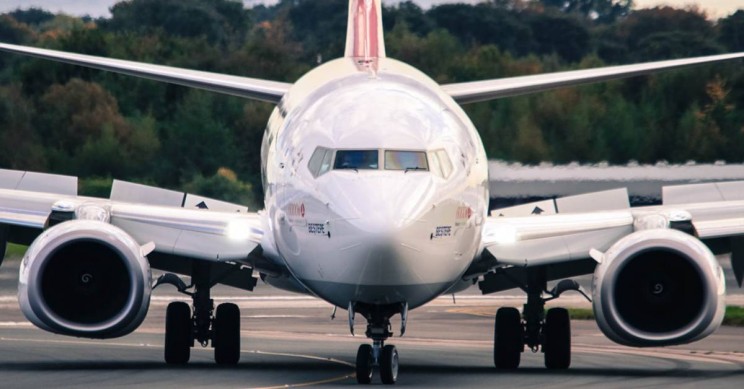US regulators have uncovered a possible new flaw in Boeing’s troubled 737 Max aircraft that is likely to push back test flights.
The Federal Aviation Administration (FAA) said it had identified the “potential risk” during simulator tests, but did not reveal details.
Boeing’s top-selling aircraft was grounded in March after two crashes.
The company is upgrading the aircraft’s flight control system, which is the focus of crash investigators.
The control system can help prevent a plane from stalling.
In a tweet, the FAA said: “On the most recent issue, the FAA’s process is designed to discover and highlight potential risks. The FAA recently found a potential risk that Boeing must mitigate.”
A source familiar with the situation told the BBC: “”During simulator testing last week at Boeing, FAA test pilots discovered an issue that affected their ability to quickly and easily follow the required recovery procedures for runaway stabiliser trim (ie, to stop stabilisers on the aircraft’s tail moving uncontrollably).
“The issue was traced to how data is being processed by the flight computer.”
Last month, the FAA indicated that approval of Boeing’s changes to the 737 Max could come in late June. That would have allowed test flights in early July.
There were initial hopes among airlines that the 737 Max would be back in the air during the summer, but that timetable was pushed back to late this year even before the latest news.
Reuters, which first reported the new issue, said during an FAA pilot simulation in which the software was activated, it had taken longer than expected to recover the aircraft.
Other sources said the problem was linked to the aircraft’s computing power and whether the processor possessed enough capacity to keep up.
Boeing said “we are working closely with the FAA to safely return the Max to service” and that it believed a software fix would address the problem.
But the FAA will be looking into whether it is a hardware issue.
If regulators are unsatisfied with the software fix, the microprocessor unit will have to be replaced and the grounding may stretch on for months longer than previously thought.
The loss of Ethiopian flight ET302 in March was the second fatal accident involving a 737 Max in the space of five months. A near identical aircraft, owned by the Indonesian carrier Lion Air, went down in the sea off Jakarta in October 2018.




